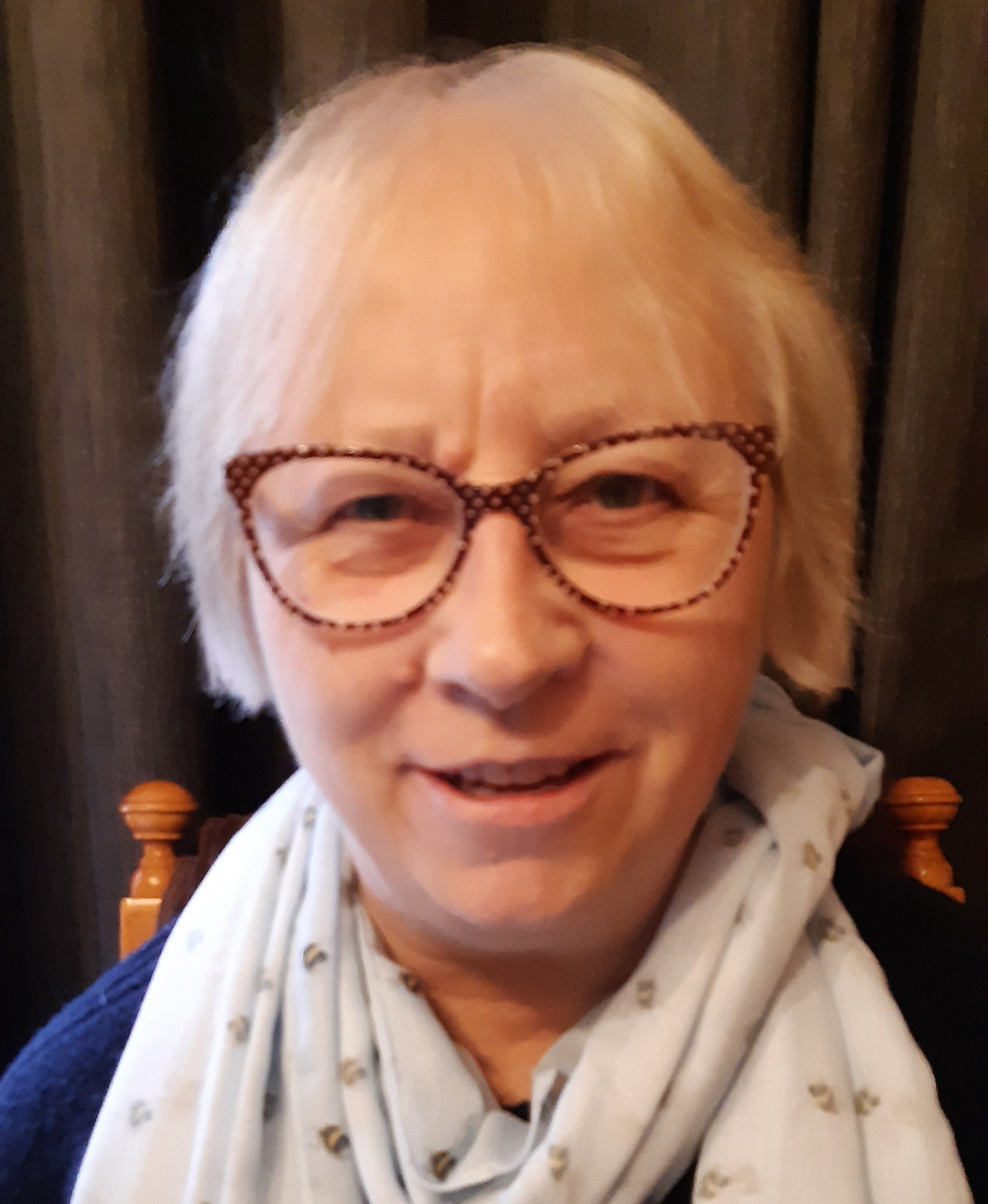Councillors and Elections
Wilberfoss Parish Council is made up of nine Councillors
They follow the Good Councillors Guide (2016) and the Code of Conduct adopted in 2021.
Cllr Richard Rains (Chair) - Richard has lived in Wilberfoss with his wife, Pat, since July 2017. He works as a Fleet Engineer for the East Coast Railway company, LNER, based in Skeldergate, York.
When he is not at work, time has been spent refurbishing his home and garden and getting to know what it is like to live in a village.
Richard joined the Parish Council to be able to take an active role in village life and help maintain and support the high standards that make Wilberfoss a great place to live.
Cllr Lynda Hoyle (Vice-Chair) - Lynda moved to Wilberfoss in 1996 from Suffolk, but is East Riding born and bred. She moved with her husband Chris, and three daughters who have all now left the village. After being in education for 37 years, Lynda retired as an Executive Headteacher of 3 schools in Barnsley in 2016. On retiring she took up a role as a Governor at Wiberfoss Primary school and has been Chair of Governors there since 2016.
Lynda joined the Parish Council as a natural extension of her work on the Governing Body of the Primary School, to provide a direct and personal connection between these two important institutions of the village.
Cllr David Barnett - David and his wife moved to Wilberfoss from Hove in 2015. He is an academic who has taught in Oxford, Huddersfield, Munich, Dublin and Brighton, and came to the University of York as a Professor of Theatre.
He joined the Parish Council in 2021 because he wanted to participate more actively in the life of the village. He has experience of setting and managing budgets, drafting and approving policy, and hopes that this will prove useful and helpful to his work as a councillor.
Cllr Michelle Wallis - Michelle has lived in Wilberfoss since 2001, after moving up from Kent in 2000. As soon as she moved into the village everyone made her feel welcome and joining the Parish Council offers Michelle an opportunity to put something back into the community.
Michelle's background is in Finance, HR and Compliance. She has a desire to never let anything go, and is hoping these skills and attributes will be of benefit. Michelle acknowledges that Wilberfoss is a great place to live and by joining the Parish Council she hopes to help keep it this way.
Cllr Colin Veitch - Colin relocated to Wilberfoss from Edinburgh with his wife and eldest daughter in December 1993 with his second daughter being born soon after in June 1994. Both daughters undertook their primary education at Wilberfoss COE primary school and whilst now both moved away from the village, they retain friendships within the village from those early years. Colin recently retired from a long career at senior level in the construction industry both in the UK and Gulf region.
Colin remains a chartered member of the chartered institute of building.
Now being freed from full time employment Colin now wishes to share his free time, technical and management experience with the council to help maintain and improve the environment of the village for all existing and future residents.
Cllr Alan Mercer - Alan has lived in Wilberfoss since 1984. He has run his own business for 25 years, supplying specialist optics to the Army and is still working.
Alan joined the council to help to improve the village for its residents.
Cllr Stuart Savage - Stu and his wife, Rebekah, moved to the village in June 2022 from Knaresborough shortly after their two children left home. They had previously spent some time living in a village just outside of Cambridge and loved the village way of life, so Wilberfoss was an attractive destination for them to move to a quieter location, whilst being close by for their children.
Stu is a former Partner at Deloitte (now semi-retired) specialising in VAT and spent many years assisting charities, public sector organisations and a number of international businesses that are household names.
In his spare time, Stu has "thrown himself in" to village life, part of which involves running the weekly "Tuesday Chat" sessions at the village Community Centre, alongside his wife. Stu was also part of the team which secured full-fibre broadband for the village. He also makes an attempt to improve his table tennis skills at the club each Tuesday night at the Community Centre and enjoys walking whilst away in his caravan.
Vacant seat - Wilberfoss Parish Council can now co-opt for this vacancy. Please email clerk@wilberfossparish.org.uk for further details.
Vacant Seat - currently being advertised
Mrs Sarah Wills (Parish Clerk)
Sarah has been Clerk to Wilberfoss Parish Council since November 2000.
Elections
A local, or Parish Council is composed of a chairman and councillors. The number of councillors is fixed by the district council. In England it must not be less than five and in Wilberfoss Parish it is currently nine. As a body corporate, the council is a person and distinct from its members either as individuals or collectively. Its assets, acts and liabilities are its own and not those of its members.
Parish Council Elections - Make a Change, Become a Councillor
The last election took place on the 4th May 2023 and the next elections will take place in May 2027.
Definitive guidance on what is involved, who is eligible to stand/vote can be found on the ERYC website
here. In summary:
Who may stand for Election?
A person is qualified to stand for office if he/she is a British subject or citizen of the Irish Republic or other Euronational, is over 21, and is an elector. In addition he/she will be qualified if he/she has either during the whole of the twelve months before the day on which they are nominated as a candidate, or the day of the election, resided in the parish or within 3 miles of it or occupied as owner or tenant any land or premises therein or had his/her principal place of work there. One effect of these rules is that it is possible to be a member of more than one local council.
A person may be disqualified from being elected or being a member in a number of ways:
- Holding paid office in the gift or disposal of the council
- Bankruptcy and execution of compositions arrangements with creditors create disqualifications which date from the judgment and end when the debts have been paid in full or when the bankruptcy has been annulled for error or discharged with a certificate that it was caused by mere misfortune. In other cases the disqualification ceases five years after discharge or fulfillment of the deed of composition or arrangement.
- A person may be disqualified by order of the court if it holds him/her responsible for incurring or authorising illegal expenditure exceeding £2,000.
- A person is disqualified if he/she has within five years before the election or since the election been convicted in the United Kingdom, the Channel Islands or the Isle of Man of any offence and has been sentenced to not less than three months¿ imprisonment (whether suspended or not) without the option of a fine.
- Finally a person may be disqualified under any enactment relating to corrupt or illegal practices. The name of any such person will be found in a special list which must be published with the electoral register.
How to Attain Office
A suitably qualified person may become a member of a local council in five different ways. These are:
- Ordinary election
- Bye-election
- Co-option to a casual vacancy
- Appointment by the district council
- Return after a successful election petition
- Ordinary Election
Each candidate must be nominated on a separate nomination paper stating his/her full name, place of residence and description. The returning officer (appointed by the district council) must supply nomination papers and prepare them for signature on request. Each nomination paper must be signed by a proposer and seconder (subscribers) who must be electors for the locality or, if it is divided into wards, of the relevant ward for which the candidate is nominated. A nomination is void unless the candidate consents in writing.
If there are enough vacancies for the validly surviving candidates the returning officer must, not later than 11 o'clock on the day of the election, declare them elected. If their number exceeds the number of vacancies, a poll must be held by the method of secret ballot. If there is a tie, the returning officer must decide by lot.
Bye-Elections
- A bye-election of the whole council can occur when a local council comes into existence in some year other than the year in which district councillor for the locality is elected, and when an entire election is declared void and lastly when a new election is ordered by the district council under its `reserve power¿.
- A bye-election to a particular vacancy occurs either where the membership of a local council has been increased during the term of office of the existing members or where a bye-election to fill a casual vacancy has been claimed. The vacancies in newly created offices are not `casual¿ and must therefore be filled in any of the ways in which vacancies are filled at or immediately after the ordinary elections.
- Bye-elections are conducted in the same way as ordinary elections.
Casual Vacancy
A casual vacancy is deemed to have occurred:
- When a local councillor fails to make his declaration of acceptance of office within the proper time or
- When his notice of resignation is received; or
- On the day of his death; or
- In the case of disqualification by conviction or an order under the 1972 Act; or
- In the case of an election being declared void; or
- Where a person ceases to become disqualified, or becomes disqualified for any reason other than conviction or an order, or is persistently absent from meetings, upon the date when his office is declared vacant by the High Court or council as the case may be.
After the vacancy has been declared, it must be publicly notified in the usual manner. If a poll is claimed by ten electors a bye-election takes place within 60 days of the notice of vacancy. If no poll is claimed in time, the council fills the vacancy by co-option as soon as is practicable. It must do this, if the period of vacancy has six months or more to run. It may, but is not bound to do so, if less.
-
Button
A dog walker at sunset on Birker Lane, a rural road in Wilberfoss
-
Button
St John the Baptist Church in Wilberfoss with trees and a field in the foreground.
-
Button
The footbridge linking Main Street and Beckside in Wilberfoss
-
Button
The historic milestone showing the distance that Wilberfoss is from Beverley (21 miles) and York (8 miles).
Site Map
Other Useful Links
- Connect to Support East Riding
- Cheaper Heating Oil, Gas & Electricity
- Find Local Post Offices
- Local Links
- Roadworks
- NHS Urgent Treatment Guide
- Drone laws in the UK
- Find your local Job Centre
- Humberside Police Community Alerts
- Find your nearest Register Office
- Claiming Universal Credit
- Find my nearest pharmacy
- Move Mates - a walking buddy project
Parish Newsletter
The cost of the monthly Parish Newsletter is now covered by the Precept. This offers more publication space for village life and events. If you have something to say contact the Editorial Team . They're waiting to hear from you!
Find the latest Newsletter by navigating to the dedicated page on this site.
Telephone | WhatsApp +44 7494 567851
Email |
clerk@wilberfossparish.org.uk
Parish Council
WhatsApp Channel
2023 Copyright © All Rights Reserved









